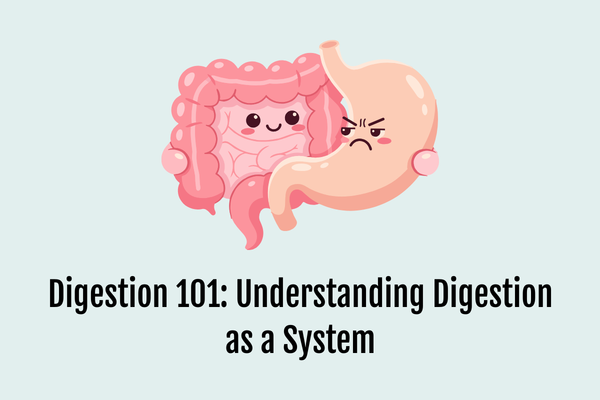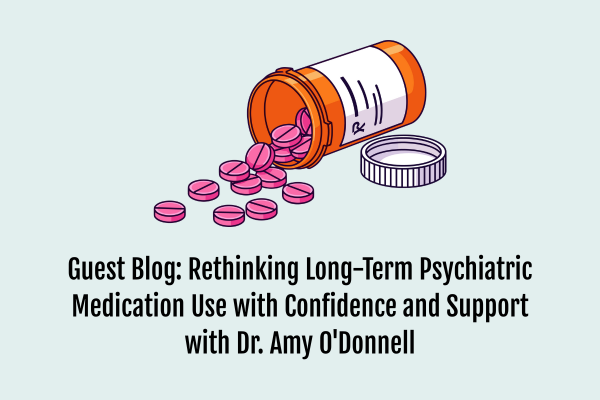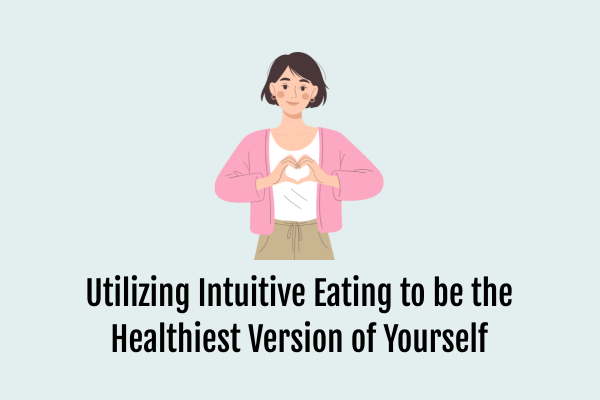The Truth About Ultra-Processed Foods
Written by: Sophia Schweiger
Reviewed by: Devon Epitropoulos (Kroesche), MS, RDN, LDN
From sugary breakfast cereals to shelf-stable snacks and microwave meals, ultra-processed foods dominate grocery stores and drive many modern health issues.
In this blog post, we’ll break down:
- What ultra-processed foods are
- How they affect your body and brain
- The difference between processed and ultra-processed
- How to transition to a whole-food lifestyle through smart meal planning, meal prep, and personalized nutrition
If you're striving for healthy eating, increased energy, and better long-term health, reducing ultra-processed foods is a great place to start.
What Are Ultra-Processed Foods?
Let’s clear up some confusion.
Processed foods include any food that's been altered from its original form for safety, convenience, or shelf life. This can include:
- Frozen vegetables
- Canned beans
- Whole-grain bread
- Roasted nuts
These can absolutely be part of a healthy, balanced diet.
Ultra-processed foods, on the other hand, are industrial formulations made mostly or entirely from substances extracted from food (like oils, fats, sugar, starch, and protein isolates) or synthesized in laboratories (like artificial flavors, colors, emulsifiers, and preservatives).
Examples of Ultra-Processed Foods:
- Soda and energy drinks
- Packaged snack cakes and cookies
- Flavored chips and crackers
- Instant noodles and frozen pizzas
- Processed meats like hot dogs and deli slices
- Sweetened breakfast cereals
- Protein bars with a long list of ingredients
They’re designed to be hyper-palatable, easy to overconsume, and highly shelf-stable—often at the expense of your health.
Why Dietitians Are Concerned About Ultra-Processed Foods
Ultra-processed foods aren’t just “empty calories”—they can actively disrupt your metabolism, increase inflammation, and contribute to chronic disease.
Ultra-processed foods can lead to:
- Fatigue and low energy
- Digestive issues
- Blood sugar instability
- Weight gain
- Insulin resistance
- Cardiovascular disease
- Poor mental health outcomes
They’re often high in sugar, salt, and unhealthy fats—and low in fiber, protein, and essential nutrients. That’s a recipe for metabolic chaos.
The Science: Ultra-Processed Foods and Your Health
More and more studies are linking ultra-processed food consumption to poor health outcomes. Here’s what the research shows:
- A 2019 study published in BMJ found that people who consumed the most ultra-processed foods had a higher risk of cardiovascular disease and all-cause mortality.
- Ultra-processed foods are linked to an increased risk of type 2 diabetes due to their negative effects on blood sugar and insulin response.
- Research from Cell Metabolism found that people eating ultra-processed diets consumed 500 more calories per day on average than those eating minimally processed foods, even when both diets were matched for nutrients.
It’s not just about what's in ultra-processed foods—it's about what’s missing: fiber, antioxidants, vitamins, and minerals that support healthy eating and cellular function.
Meal Planning Tips to Reduce Ultra-Processed Foods
Reducing ultra-processed food intake doesn't mean spending hours in the kitchen or giving up convenience.
Here’s how to use meal planning and meal prep to make the shift feel easy and sustainable:
1. Start with Simple Swaps
- Swap sugary cereal → Overnight oats with berries and nuts
- Swap flavored yogurt → Plain Greek yogurt with honey and fruit
- Swap frozen meals → Batch-cooked grain bowls
- Swap chips → Air-popped popcorn or roasted chickpeas
- Swap soda → Sparkling water with lemon or fruit
2. Build a Real Food Grocery List
Stock your kitchen with:
- Fresh or frozen veggies
- Whole grains like brown rice, quinoa, and oats
- Legumes (beans, lentils, chickpeas)
- Lean proteins (chicken, turkey, eggs, tofu)
- Healthy fats (olive oil, avocado, nuts, seeds)
- Herbs, spices, and simple sauces
A well-stocked kitchen makes healthy eating and cooking from home much easier.
3. Batch Cook Basics Each Week
Meal prep doesn’t have to be complicated. Just batch-cook a few staples:
- Grains: Cook a big batch of rice or quinoa
- Protein: Grill or roast chicken, hard-boil eggs, or prep tofu
- Veggies: Roast sheet pans of mixed vegetables
- Sauces: Blend a vinaigrette or tahini-based dressing
From these components, you can mix and match meals all week long.
Personalized Nutrition: Not Everyone Needs the Same Approach
Everyone should not follow the same diet, as food choices should be personalized to the following characteristics:
- Age and gender
- Activity level
- Medical history
- Food preferences and culture
- Lab values and metabolic markers
Some people need more carbs for energy, while others may benefit from higher protein to manage cravings. A personalized nutrition plan from a registered dietitian can help you navigate the confusion and figure out what works best for your body, without falling for restrictive, standardized food rules.
The Hidden Impact of Ultra-Processed Foods on Mood and Mental Health
Ultra-processed foods don’t just affect your body—they affect your brain, too.
Emerging research shows that diets high in ultra-processed foods are associated with:
- Increased risk of depression and anxiety
- Poor sleep quality
- Low cognitive performance
- Higher levels of stress and irritability
Why? These foods may disrupt the gut-brain axis, increase inflammation, and lead to blood sugar imbalances—all of which affect mood and mental clarity.
How to Break the Ultra-Processed Habit Without Feeling Deprived
Let’s be real: ultra-processed foods are everywhere. So, how do you cut back without feeling restricted?
Here are some practical steps from a dietitian:
Be a Label Detective
Learn to read ingredient lists. Watch out for products with:
- Artificial sweeteners
- Hydrogenated oils
- Added colors and flavors
- Corn syrup or maltodextrin
Don’t Strive for Perfection
You don’t need to eat 100% whole foods 100% of the time. The goal is progress, not perfection. Aim to crowd out ultra-processed items by filling your plate with real food first.
Want Support Making the Shift to Real Food?
If you’ve been relying on ultra-processed foods and want to feel better, without doing it all alone, we're here to help.
A Case Specific dietitian can work with you to develop a personalized nutrition plan that fits your life, preferences, and health goals.
Reach out to scheduling@casespecificnutrition.com to connect with a Case Specific Dietitian and start your journey toward real food and real energy today. Our team provides individualized nutrition care across the Greater Pittsburgh area, as well as in Erie, Raleigh, and Tampa.
Disclaimer: The information provided in this blog is for educational purposes only and is not intended to diagnose, treat, cure, or prevent any medical condition. This content is not medical advice and should not be used as a substitute for professional medical care. If you have any health concerns or medical conditions, please consult with a qualified healthcare provider before making any changes to your diet or lifestyle.

.png)



.webp)

